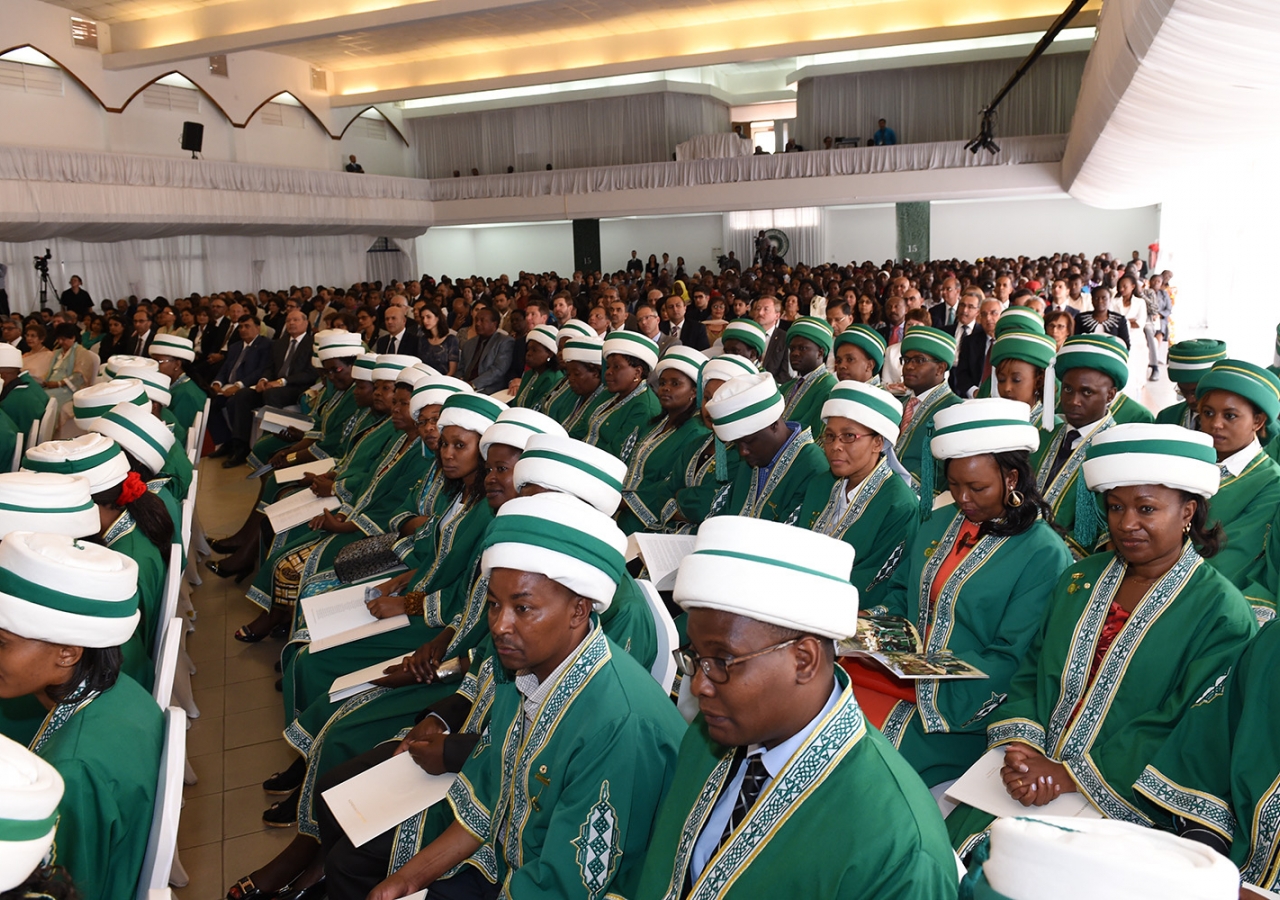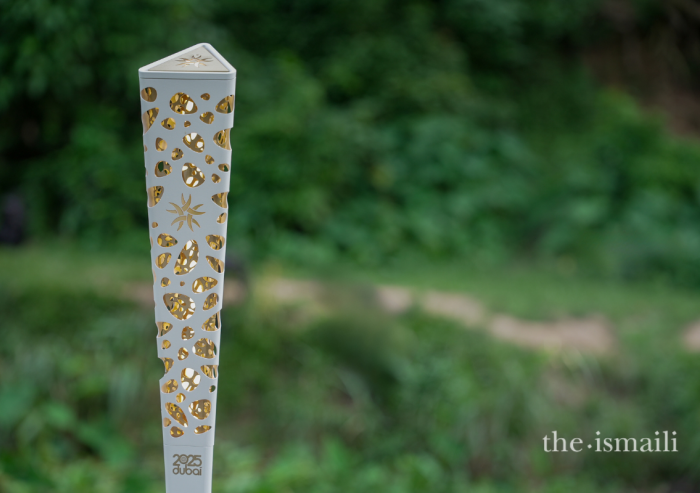“What a remarkable day this is, and what a joy it is to be here,” said Mawlana Hazar Imam, speaking in his capacity as Chancellor of the University. “It is a singular pleasure for me because this is the first year that I have been able to attend an AKU convocation in East Africa.”
“It is fitting that 2015 marks not only our 15th year in East Africa, but the 15th anniversary of the reestablishment of the East African Community.” remarked President Rasul. Understanding how the university might contribute to the region’s development has played a significant role in shaping the university’s growth in East Africa.
“In the search for Africa’s development,” recalled Mawlana Hazar Imam, “it seemed clear that expanded knowledge would be the key to progress, as it has been throughout human history.” He reminded the audience that AKU’s intellectual roots are grounded “in the rich history of Islamic intellectual accomplishment,” which includes the Ismaili Imamat’s founding of Al-Azhar University and the Dar-ul-Ilm in Fatimid Cairo a thousand years ago, as well as the the establishment of the first Aga Khan School in Bagamoyo, Tanzania some 110 years ago.
“The same legacy was in our minds when we began planning for this new Aga Khan University,” he said. AKU opened its doors in 1983 in Karachi, Pakistan, and has since expanded into eight countries. The university began offering its first East African programme in Advanced Nursing Studies in 2000 in Kenya, Tanzania and Uganda.
Looking to the future, Mawlana Hazar Imam said that the role of the University “can be central” in establishing and supporting civil society in Africa. “A healthy civil society is a meritocratic one, where ethics are honored, and excellence is valued,” explained the Imam.
He asserted that “improving the quality of human life in any setting is linked directly to the quality of civil society.”
The priority that AKU has placed on health will yield one of the most tangible improvements in quality of life. The university aims to achieve an international standard of care by putting in place an integrated healthcare system. “No Kenyan should have to leave the country to seek quality medical care,” said Hazar Imam.
Other AKU initiatives in Kenya will bolster civil society in different ways. For example, the recently-launched Institute for Human Development seeks to learn more about the development of the human brain in young children.
Meanwhile, the Graduate School of Media and Communications will strengthen the field of journalism by equipping journalists with the increasingly specialised skills they require to provide intelligent and critical reporting to an increasingly educated population. Professional schools in leadership and management, and hospitality and tourism will produce graduates who can make a meaningful contribution to the advancement of industry.
“Each of these Graduate programmes is designed to advance a healthy civil society in specific African contexts, and thus quickly accelerate improvement in the quality of human life,” noted Hazar Imam.
At a time of significant change and promise, “the great question now confronting us in Africa is how rapidly the institutions of a healthy civil society can be established and reinforced,” he said.
The Aga Khan University in East Africa is racing to meet that challenge.










